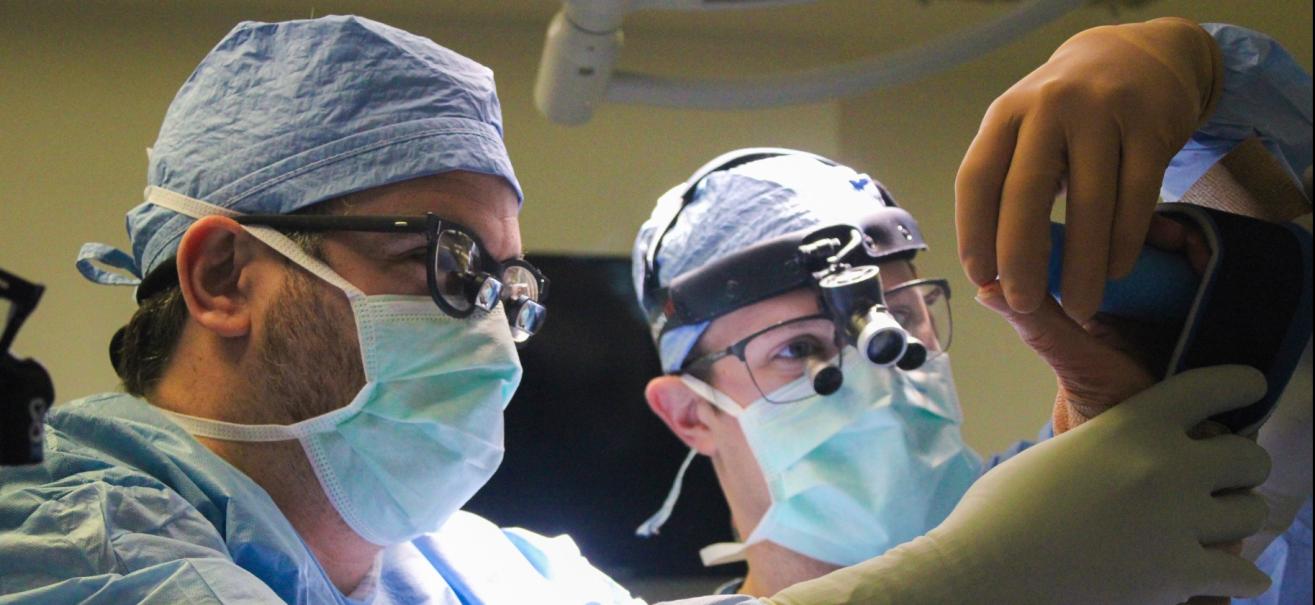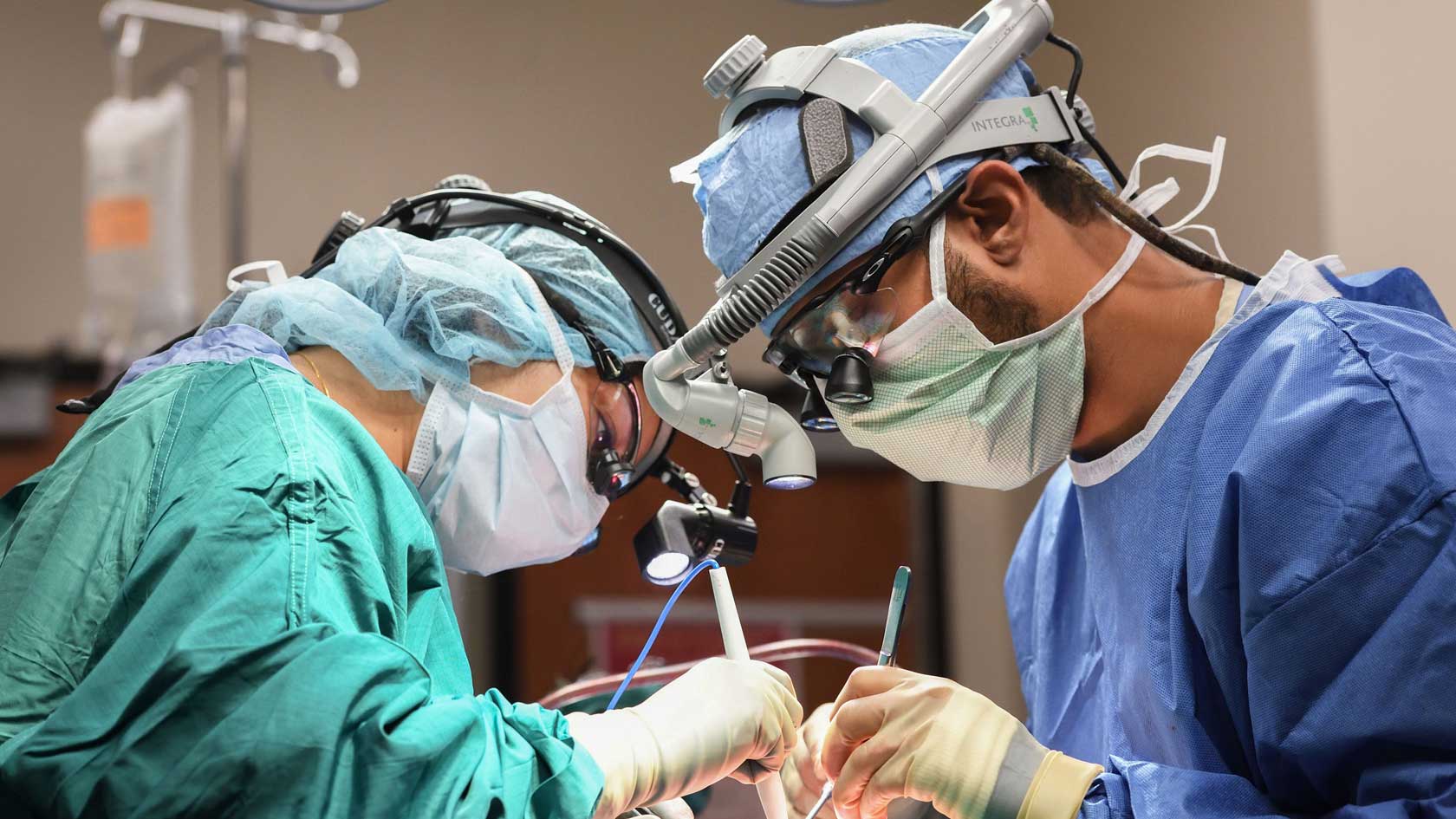ENT Surgery Explained: When Is It Recommended?
ENT Surgery Explained: When Is It Recommended?
Blog Article
Exploring the Area of Otolaryngology: What to Expect When You Get In Touch With an ENT
Otolaryngology, commonly referred to as ENT, incorporates the diagnosis and treatment of ear, nose, and throat conditions. For those experiencing associated issues, getting in touch with an ENT expert can provide clarity and relief. Comprehending what to expect during such assessments is vital for effective communication and treatment. This introduction will certainly detail crucial aspects of the ENT experience, including common factors for sees and the processes associated with diagnosis and therapy.

Comprehending Otolaryngology: An Introduction
Otolaryngology, frequently described as ENT (Nose, throat, and ear) medicine, is a specific branch of medicine that concentrates on the medical diagnosis and therapy of conditions influencing these vital locations of the human body. This field incorporates a wide variety of disorders, including those pertaining to hearing, balance, respiratory system function, and speech. Otolaryngologists are trained to handle both clinical and surgical therapies, using advanced techniques and innovations. Their competence expands past traditional disorders, addressing problems such as allergic reactions, sinus infections, and hearing loss. Furthermore, they play an important duty in the management of head and neck cancers, providing comprehensive treatment customized to individual person demands. Overall, otolaryngology continues to be essential for maintaining health and high quality of life in afflicted individuals.
Typical Reasons to See an ENT Specialist
Lots of individuals seek the proficiency of an ENT specialist for a selection of factors, showing the diverse nature of problems that impact the throat, nose, and ear. Usual problems include persistent sinusitis, which frequently leads to relentless nasal congestion and face pain. Allergic reactions and their linked symptoms, such as itching and sneezing, likewise trigger brows through to these professionals (Sinus). Hearing loss, whether abrupt or steady, is another substantial factor for consultation. Additionally, individuals may look for assessment for throat problems, including relentless hoarseness or ingesting problems. Sleep apnea, defined by cut off breathing throughout rest, is frequently addressed by ENT specialists. Each of these conditions highlights the significance of specialized care in managing complex ENT-related health concerns
Planning for Your ENT Consultation
When preparing for an ENT visit, it is necessary to collect appropriate info and consider any kind of particular issues. People must assemble an in-depth case history, including previous ear, nose, or throat problems, surgical treatments, and existing medications. Documenting symptoms-- such as duration, frequency, and seriousness-- can offer important understandings for the ENT expert. In addition, people need to prepare a listing of inquiries they want to ask, making certain that all problems are addressed throughout the browse through. Bringing along any kind of pertinent clinical records or test outcomes can better assist the ENT in recognizing the person's problem. Ultimately, people must verify their visit information, consisting of day, place, and time, to lessen any kind of final complication. Correct prep work can improve the efficiency of the assessment and lead to much better results.
What to Anticipate During the Appointment
As the examination starts, the patient can expect to take part in an extensive discussion with the ENT professional regarding their symptoms and case history. The professional will make inquiries regarding the period, frequency, and extent of signs such as hearing loss, nasal blockage, or sore throat. In addition, the client's previous clinical conditions, drugs, and any relevant family background will certainly be evaluated, assisting the specialist in developing a full understanding of the client's wellness. The ENT may likewise ask about way of life variables, such as exposure to toxic irritants or allergens. This open discussion develops a foundation for the examination, ensuring that the individual's problems are dealt with and establishing the phase for any necessary examinations or referrals for therapy.
Diagnostic Examinations and Procedures in Otolaryngology
An array of diagnostic examinations and procedures are important in otolaryngology to properly evaluate and identify problems affecting the nose, throat, and ear. Usual examinations consist of audiometry, which gauges hearing function, and tympanometry, evaluating center ear stress. Nasal endoscopy allows visualization of the nasal passages and sinuses, while laryngoscopy analyzes the throat and singing cords. Imaging techniques, such as CT scans and MRIs, offer in-depth sights of head and neck frameworks. Allergic reaction screening might also be conducted to determine triggers for sinus or respiratory system concerns. These diagnostic tools allow ENT experts to create a thorough understanding of patients' problems, making certain customized and reliable monitoring strategies. Appropriate medical my company diagnosis is vital for effective treatment results in otolaryngology.
Treatment Choices Offered by ENT Specialists
ENT specialists supply a variety of treatment alternatives tailored to resolve specific problems influencing the nose, ear, and throat. These therapies vary from conventional methods, such as medicine and way of life alterations, to more invasive treatments. As an example, allergic reactions may be handled with antihistamines or immunotherapy, while chronic sinusitis might call for nasal corticosteroids or sinus surgical treatment. For hearing loss, ENT professionals usually advise hearing help or surgical treatments like cochlear implants. In situations of throat disorders, options can consist of speech therapy or operations to get rid of obstructions. In addition, they may supply support for managing rest apnea, including the use of CPAP tools or surgical treatments. Generally, the objective is to enhance patients' lifestyle through customized care and efficient treatment methods.
When to Seek Follow-Up Treatment With an ENT
Acknowledging when to look for follow-up care with an ENT professional is essential for taking care of ongoing signs and symptoms or difficulties associated with ear, nose, and throat problems. People must consider scheduling a follow-up appointment if signs and symptoms linger regardless of initial treatment, such as persistent ear pain, nasal blockage, or throat pain. Changes in hearing, balance problems, or unusual nasal discharge may likewise call for further examination. Furthermore, if a person experiences adverse effects from suggested medicines or has actually undertaken an operation, follow-up treatment is very important to keep an eye on healing and resolve any concerns. Timely assessments can assure reliable monitoring of problems, protect against prospective problems, and offer assurance relating to one's health. Seeking follow-up care promotes aggressive wellness management in otolaryngology.
Frequently Asked Inquiries

What Qualifications Should I Seek in an ENT Professional?
When seeking an ENT professional, one must search for board certification, pertinent experience, and solid patient testimonials. In addition, reliable communication skills and a caring method can significantly enhance the total therapy experience.
Just how Do I Choose the Right ENT for My Needs?
Selecting the ideal ENT expert includes evaluating their qualifications, experience, and patient reviews (ENT Doctor). It is vital to contemplate their interaction style and strategy to treatment, guaranteeing they align with the person's details health demands and choices
Exist Any Kind Of Dangers Related To ENT Procedures?
The risks related to ENT procedures may consist of infection, bleeding, anesthesia problems, and possible damage to bordering structures. Individuals ought to talk about these risks with their physician to comprehend private worries and warranty informed choices.
Just How Can I Take Care Of Anxiety Before My ENT Appointment?
To manage stress and anxiety before a visit, people can practice deep breathing exercises, picture positive end results, sites prepare questions ahead of time, and seek support from good friends or household, cultivating a sense of peace of mind and peace.
What Should I Do if I Experience Negative Effects From Treatment?
The person should immediately report them to their hop over to here medical care service provider if side impacts from therapy happen. Changes to therapy or added interventions might be essential to assure safety and security and effectiveness in handling their problem - ENT Clinic. As the appointment starts, the person can expect to involve in a thorough discussion with the ENT specialist about their symptoms and medical background. These analysis devices make it possible for ENT experts to establish a comprehensive understanding of clients' conditions, guaranteeing tailored and reliable monitoring plans. ENT professionals offer a range of treatment choices customized to address specific conditions impacting the ear, throat, and nose. When seeking an ENT professional, one need to look for board accreditation, appropriate experience, and strong person testimonials. Selecting the ideal ENT expert involves reviewing their certifications, experience, and client evaluations
Report this page